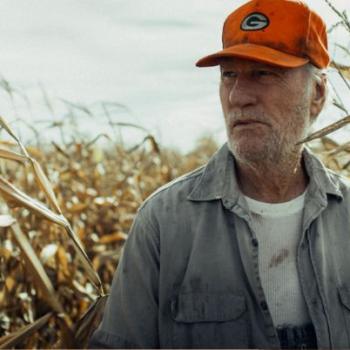It is no coincidence that this movement of evangelical Calvinists thrives in pockets of America where church attendance has eroded. Mark Driscoll from Mars Hill Church in Seattle, Mark Dever at Capitol Hill Baptist Church in Washington, D.C., and Tim Keller of Redeemer Presbyterian Church in Manhattan have three very different personalities and styles, and they represent three age brackets. But each, in his own way, has inspired many young pastors to pour their lives into dying churches and start new ones in cities considered skeptical toward evangelicals.
The meaty theology of Calvinism has other aspects that bode well for its future. For one, the intellectual nature of the Reformed faith means that it tends to exert a disproportionate influence on Christian thinking and institutions through writing, scholarship, and formal theologizing. Second, the accent on God's providential care over all encourages Christians to count the cost of discipleship in an increasingly hostile culture and trust God for the outcome.
Throughout the centuries, missionaries such as William Carey and Adoniram Judson have found encouragement to persevere from the promise of God's sovereignty. If the future holds further erosion of nominal Christianity, evangelical Calvinists are equipped to endure. Finally, a firm commitment to the full trustworthiness and authority of scripture -- along with a settled conviction in substitutionary atonement and justification by Christ's righteousness through faith alone -- are historic and essential rail guards to keep evangelicalism on a biblically faithful path.
The Peril Ahead
At the same time, we see peril. In the wider evangelical movement the richness of the biblical gospel is often marginalized, sometimes unwittingly. The gospel becomes a bullet-point summary with little power, simply a stepping stone to social activism, or the gateway to what really matters -- effective parenting, marital bliss, and financial rewards.
In this perilous and divided situation, evangelical Calvinists are often perceived as one more partisan voice clamoring for attention and market share. Worse, we are caricaturized as mean-spirited doctrine police known more for what (and whom) we are against more than what we celebrate. Still others think the new Calvinists are faddish disciples of dead Puritans or groupie-like Piperazzi.
By God's grace we will not live up (or is it down?) to these stereotypes. If God uses the movement for his glory in the days and decades ahead, it will be because he has given us the grace to be clear-headed and warm-hearted, doctrinal and devotional, discerning in spirit and ecumenical in our affections. If God uses us it will be because he has kept us focused squarely on the gospel and its massive implications flowing from Christ the center. So long as the evangelical Reformed movement offers a means of supporting gospel-centered unity, doctrine, worship, and action, we suspect it will prosper and leaven the broader church.
Still, we understand from history that movements come and go. Coalitions change when the scene shifts. So in that sense, we are not concerned for the future of this Reformed resurgence. God doesn't promise that movements will stand the test of time. That privilege belongs only to the institution of the church (Matt. 16:18). As in the local church, movements suffer the inevitable tensions that stem from diverse personalities and persistent sin. Looking toward the future, we can only pray to God and exhort one another to resist the temptations to seek personal acclaim. Rather, recognizing God's grace shown toward us, we should "love one another with brotherly affection" and "outdo one another in showing honor" (Rom. 12:10).
Meeting this standard will not be easy. As our movement grows, we will face new challenges. We will not always agree. Right now, we see several potential dangers.
1) Some of us struggle to be bold without being obnoxious; others of us seek to be meek but often succumb to cowardice. We want to guard the truth, not strangle it. We want to be both wise and innocent, fearless and faithful, bold but brokenhearted. We want to keep our affections in proportion to the things that matter most.
2) We are trying to find the right balance between the call to radical discipleship and the acceptance that faithfulness requires much that is mundane and ordinary. Along these lines, there is still much confusion about whether the church's mission in the world has been too big or too small -- too diffuse or too narrow.
3) We anticipate there will be the inevitable tensions between generations as retiring leaders pass the baton to a younger generation. Younger leaders will need great wisdom to both show respect for their heroes in the faith as well as learn that some disagreements with them are okay. For their part, older leaders must plan ahead to train a new generation of leaders and empower a deep and broad network of capable, young ministers for faithful ministry for the years ahead. We are encouraged to see many good examples of these things in both generations.




